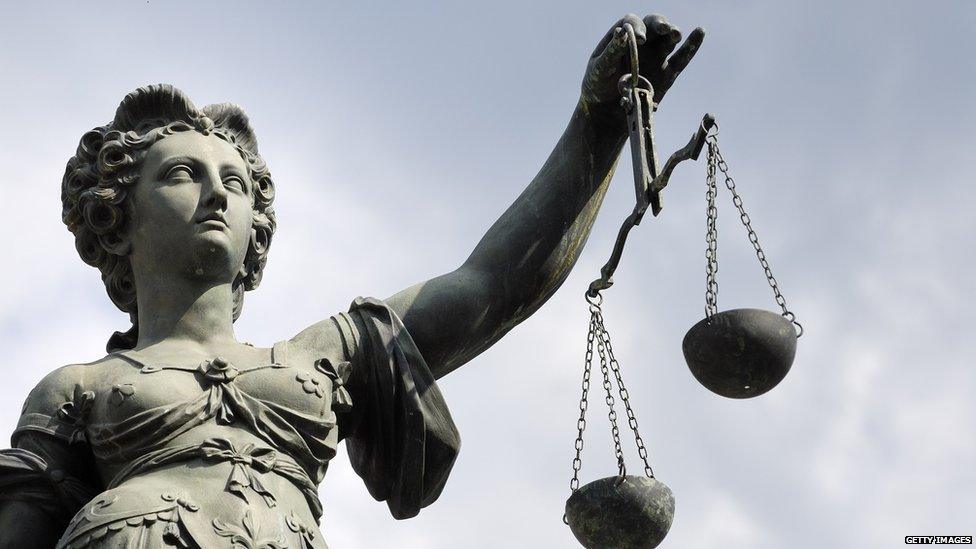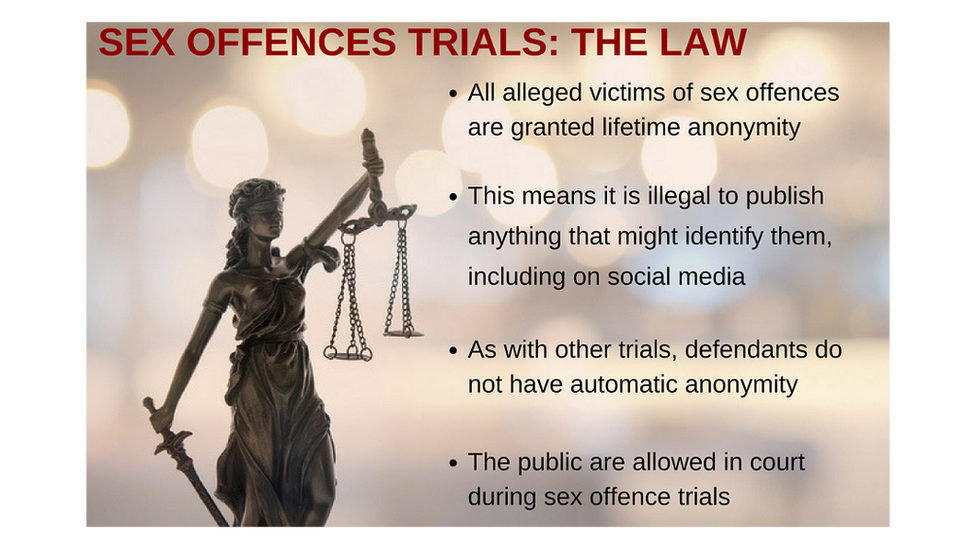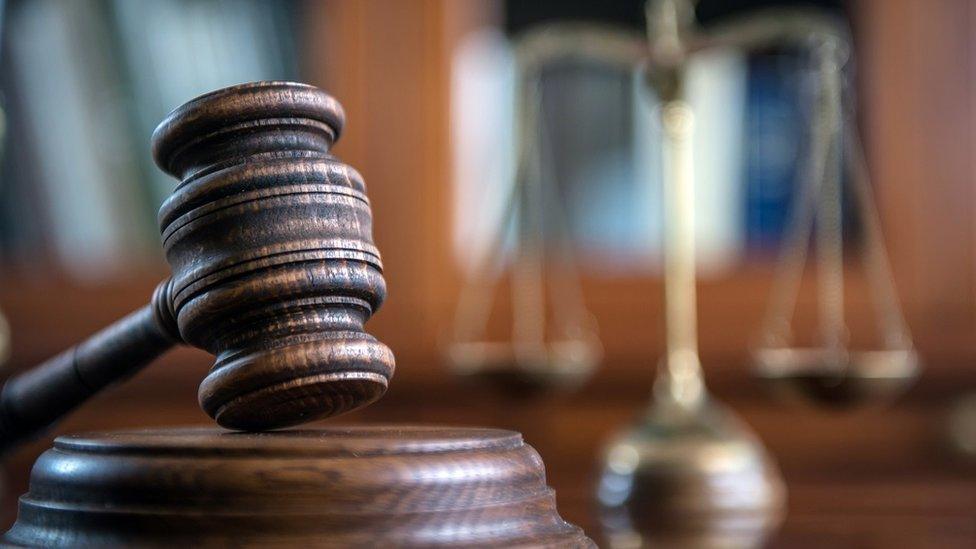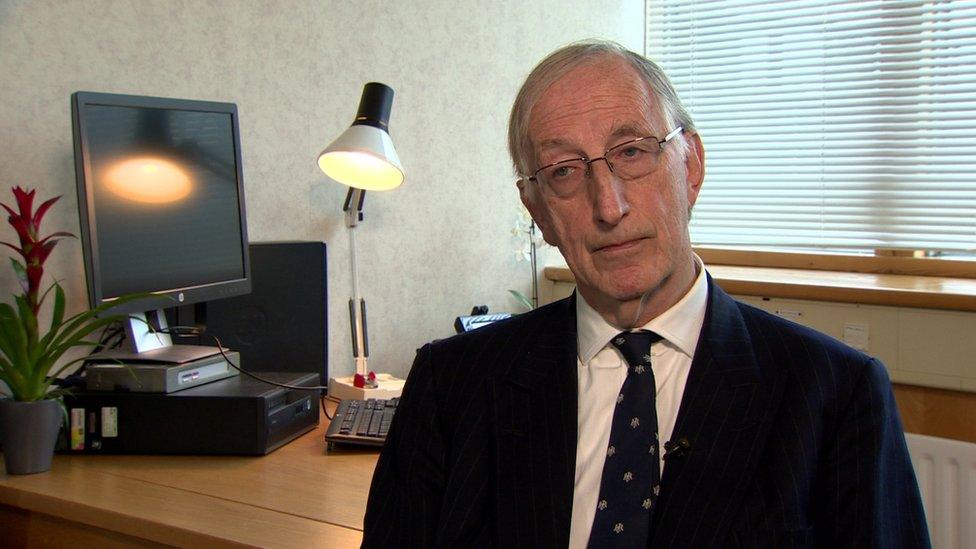Sexual assault cases: Guilty until proven innocent?
- Published

John was accused of rape - it took nearly 18 months and a court case to clear his name
"They say you're innocent until proven guilty.
"But from the moment the police questioned me they assumed I was guilty. It took nearly 18 months and a court case to prove them wrong."
John is a father-of-two. BBC News NI has agreed to call him John as he fears repercussions if he uses his real name.
He was acquitted on charges of rape and sexual assault. During the trial, it emerged that his accuser had previously made false allegations of rape against other men.
The alleged victim confided some information to a police doctor, but his defence team was not told.
It also emerged that the police failed to examine the contents of his accuser's mobile phone, which would have revealed vital information about her activities on the night of the alleged attack.
Anonymity
While all alleged rape victims are granted anonymity for life, like all defendants in a rape trial, John was publicly named.
He lost his partner, a well-paid job, friends and his home.
Experiences such as John's are being considered by an independent review into how Northern Ireland's criminal justice system deals with serious sexual offence cases, which is looking at how victims, witnesses and those accused are treated when a case moves through the courts.
It was launched after a wide-ranging public debate prompted by the trial and acquittal of two Ulster Rugby players, Paddy Jackson and Stuart Olding, along with two other men.
For John, being accused and publicly named was "horrendous".
Police blamed
"From the moment my name was in the public domain, my life changed," he said.
"Some family members and friends stopped talking to me. Some still don't speak to me even though I was cleared.
"Walking down the street I felt that everyone was talking about me. My mother felt embarrassed to be with me.
"I was very well known in the area where I lived and loved the place. I don't live there any more. I had to move because people treated me differently during and after the court case.
"I can't risk that happening again. I could lose my job if women I work with became aware that I was charged with rape even though I was cleared. The stigma and consequences never leave you."

John blamed the police for what happened. He claimed his case would not have reached court if detectives had investigated the allegations against him properly.
His accuser was a work colleague who claimed he raped her after a night out with other staff.
John claimed she sexually and physically assaulted him.
On the night of the incident, he said he escorted the woman back to her hotel because she was not from the area and did not know her way.
They went to her room after calling their work colleagues and telling them to meet there for a few drinks.
"I had had a lot to drink and fell asleep," he said.
"I woke up to find her on top of me trying to have sex with me. I pushed her off and she hit me several times."
Hotel
John says he went to the hotel receptionist and asked her to call the police because he had been assaulted.
"I was told the police were already on the way. I believe she called them from the bedroom and said I had raped her."
When the police arrived John outlined his version of events and said he want to lodge a complaint of assault.

Mobile phone records were key to resolving John's case
But a short time later he was arrested, handcuffed, and taken to a police station.
His mobile phone and clothes were removed and put into an evidence bag, and blood samples and forensic swabs were taken.
The following day, he was released on police bail and a short time later charged with rape and sexual assault.
Undermined
During his trial, details emerged that critically undermined the account of his accuser.
The first was evidence about her use of her mobile phone during a period she told police she had been drifting in and out of consciousness.
She claimed he had raped her while she was semi-conscious.
While John's mobile phone was taken from him immediately, his accuser's wasn't removed or examined for almost four months.
"A lot of the data had been removed by the time the police examined the phone records, but my lawyers brought in an expert who was able to establish that during the time she was supposed to have been drifting in and out of consciousness she had been very active on her phone, texting and talking to people," he explained.
Question mark
"If the police had checked the records before I was charged there would have been a huge question mark over her version of events and they might have been prepared to believe me.
"My lawyers had to do their work for them."
Then came evidence that his accuser had made similar unproven allegations against other men.

John's lawyers established his accuser had previously made allegations of rape and sexual assault against three other men
She made the revelation to a police doctor who interviewed her on the night she made the allegation.
But the PSNI did not make John's defence team aware of the information, or test the veracity of the claims in the previous cases.
"We found out when the doctor was in the witness box and read her notes," he recalled.
Insufficient evidence
"My barrister told the judge the information had not been disclosed and the judge agreed to let him see the notes."
John's lawyers established that his accuser had previously made allegations of rape and sexual assault against three other men in another legal jurisdiction outside Northern Ireland.
One of the men was charged and stood trial, but was acquitted.
In the two other cases, the prosecution service concluded there was insufficient evidence to press charges.
Details of one of the alleged incidents were very similar to the allegations against him.
"I find it amazing that the police did not carry out a background check after she told a police doctor she had previously alleged sexual assault," he said.
False allegations
"If they had done that, and found out that she had previously made three false allegations against other men, I don't think I would have found myself in court.
"It's also astonishing that my legal team was not made aware of this important information before the trial started.
"I think the Public Prosecution Service are also at fault because they didn't carry out proper checks either."

Lord Justice John Gillen is leading an independent review into how serious sexual offence cases are handled by the courts
He was cleared of two charges of rape and sexual assault by a unanimous verdict.
John has now instructed lawyers to sue the police and Public Prosecution Service for damages on the basis of malicious prosecution.
He has also spoken to Lord Justice John Gillen as part of the review of the way serious sexual offence cases are handled by the courts.
Defendants
One of the issues being considered is whether defendants should be given anonymity.
John would support such a move.
He also said there should be tough legal penalties for women who make false claims.
"My reputation was destroyed and my life ruined. I lost friends, family members, my partner, my job and had to move home," he said.
"The experience has made me absolutely paranoid. I spend my life looking over my shoulder just in case work colleagues or neighbours find out about my case.
"She wasted police time and wrecked my life, but there will be no consequences for her. That just isn't fair."